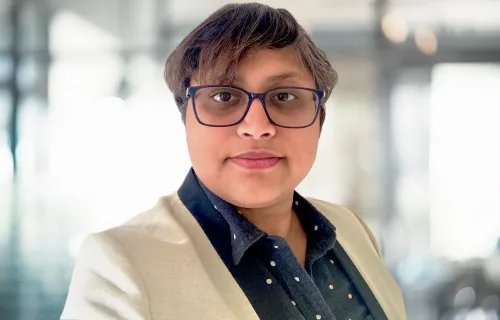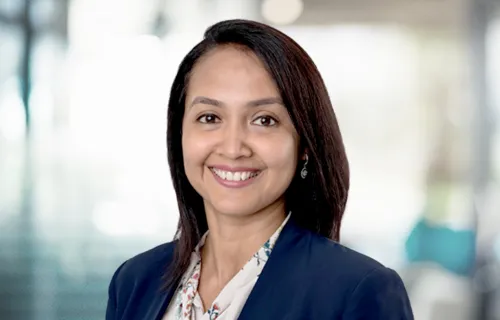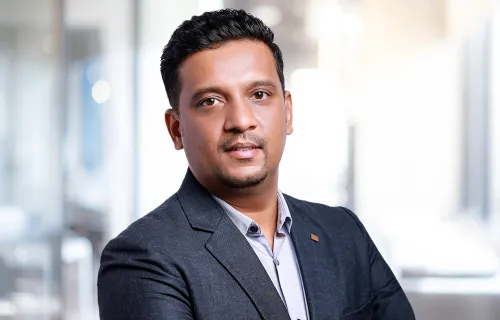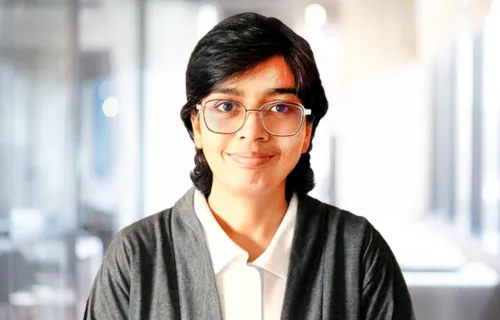Learn about what it’s like to be a developer through the eyes of Florian Dohle, a CGI Partner based in Germany.
Florian, how did you get started at CGI?
I was studying computer science at Hochschule Kempten University of Applied Sciences and working on my thesis when I joined CGI as a developer in December 2020. A friend, who later became my mentor, referred me for the role and guided me through the ins and outs of working as a developer.
I was hired to work on Microsoft Dynamics 365. Initially, my experience was limited, but I quickly acquired deep knowledge and expertise of the platform through continuous learning and support from colleagues and leaders.
How did you build your skills for your role?
I focused on self-learning, online courses, and hands-on project work. Learning by doing is key, and my colleagues are always ready to share their time and knowledge. We grow by learning from each other, and that collaboration really reflects the culture at CGI. It’s a place where sharing knowledge, supporting teammates, and celebrating outcomes together are part of everyday work.
Based on your experience, what skills matter most to be successful as a developer?
To be effective in this role, a strong understanding of Microsoft Dynamics 365 and Dataverse is essential. You also need to know how to enhance the platform, whether that’s by using JavaScript for the frontend or C# for backend development.
In addition to technical skills, effective communication is really important. People often come to me for advice, so I’ve learned how to explain technical details in a way that’s clear and meaningful, not just for other developers, but also for business stakeholders. That ability to bridge the technical and the business sides really matter.
Consciously sharing knowledge also goes a long way. When you make the effort to share what you know, it helps the whole team stay focused on finding solutions, keeps projects moving, and builds stronger collaboration.
At CGI, we all serve as consultants to our clients. It’s not just about writing good code; it’s about understanding the bigger picture, balancing technical expertise with business needs, and making sure our work drives real outcomes.
What does your day-to-day work look like?
In my day-to-day work, I customize Microsoft Dynamics 365’s low-code/no-code platform to fit each client’s unique needs. A big part of this involves analyzing their sales processes and translating them into efficient, automated workflows.
I’ve led several greenfield projects, whether clients are migrating from an existing customer relationship management (CRM) solution or starting afresh. One area I focus on is GDPR compliance, where I build clear data deletion strategies and set up detailed logging for all activities related to data protection. This is much more than checking a legal box. It provides clients with transparent, well-documented processes for handling data that build trust and reduce risk.
How is your work driving meaningful outcomes for our clients?
Being a developer and consultant go hand in hand. In addition to writing code, it’s about building relationships, understanding the client’s business, and analyzing their specific needs. From there, I turn those insights into practical, viable solutions that deliver measurable value for our clients.
For example, in one Dynamics 365 project, the solution we delivered went beyond simple task automation; it actually prompted the client to rethink how they worked. They ended up restructuring parts of their process to take advantage of the new capabilities, which not only enhanced efficiency but also supported their broader change management journey. In this way, technology became a catalyst for real organizational transformation, not just a system upgrade.
What does your typical day look like?
I usually start my day around 6:50 a.m. and get ready and arrive at the office by 9 a.m., coffee in hand. We begin with our team’s daily standup—a quick check-in that keeps us aligned and connected. These are highly collaborative meetings, where everyone has a voice, and we tackle challenges together.
After the standup, I catch up on emails and follow up on tasks that came in while I was offline. Then I dive into meetings and project work.
Around lunchtime, I usually catch up with other CGI Partners. It’s a great way to connect with colleagues and take a mental break, which helps me stay energized and focused through the afternoon.
I also carve out time in my day to learn, whether it’s reading up or staying updated with new features on the tools I use. I also like to use this time to find solutions for any technical challenges I’m facing. Sharing what I learn with my team is part of our culture of continuous learning.
After work, I recharge by meeting friends or getting in some physical activity. It’s a nice balance to the energy of the workday.
It’s been great to hear your story, Florian. On a final note, is there any advice you’d give your younger self?
I’d say: choose work that excites you, and it won’t feel like work at all. Be patient with yourself, keep building your skills, and remember that collaboration and continuous learning are the keys to long-term success.





